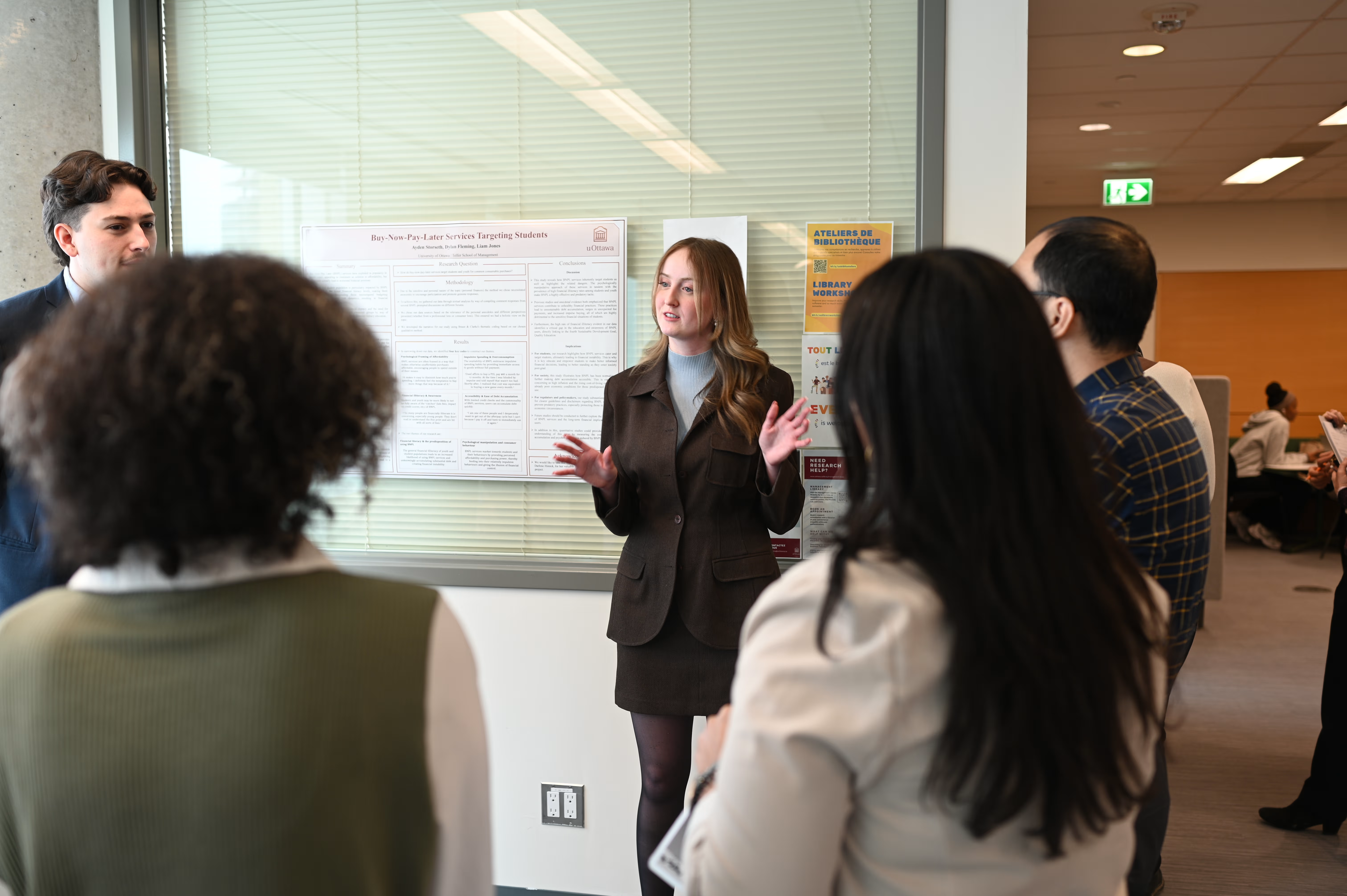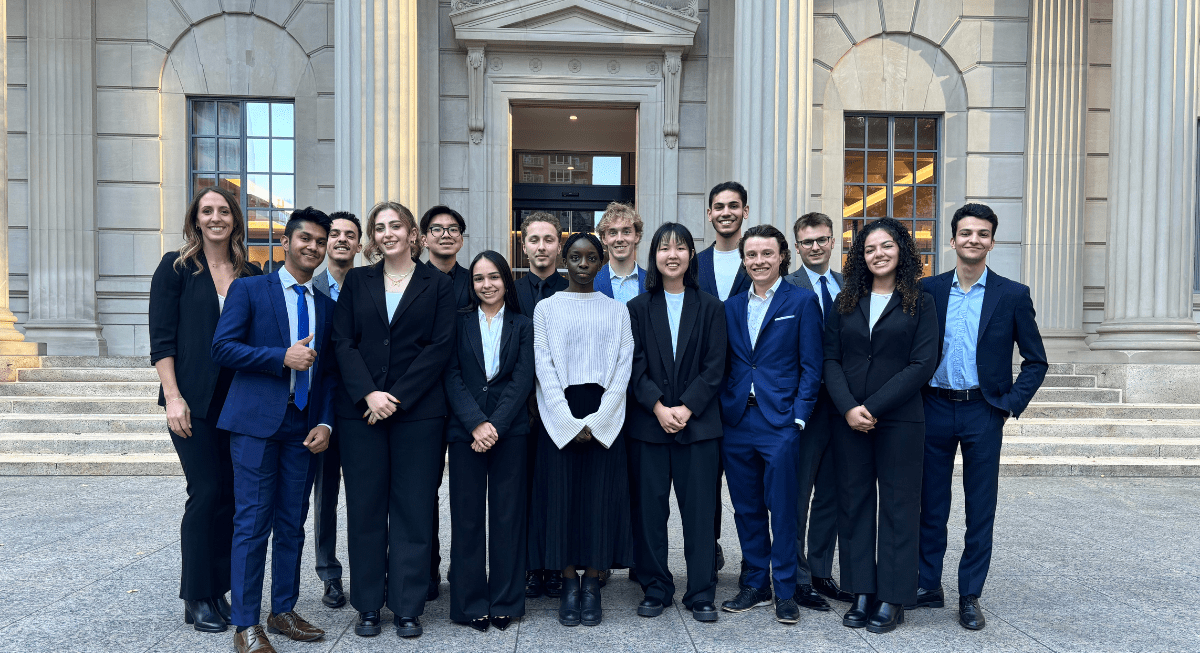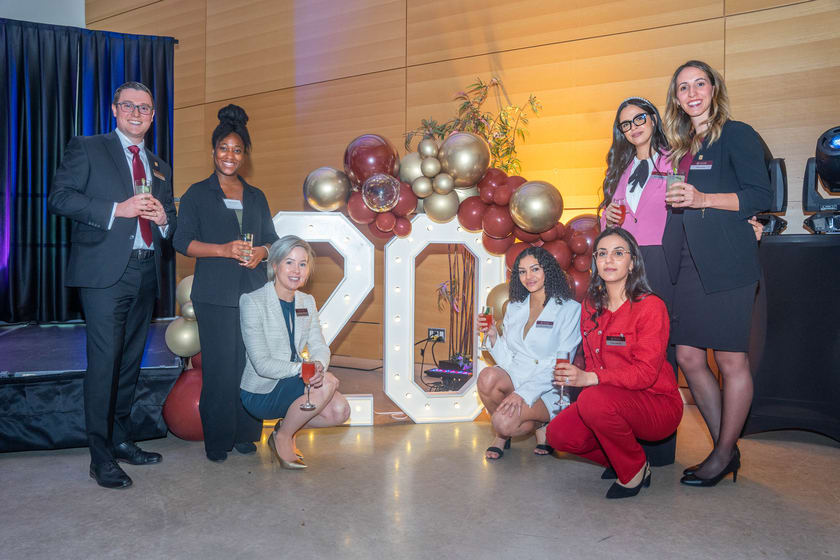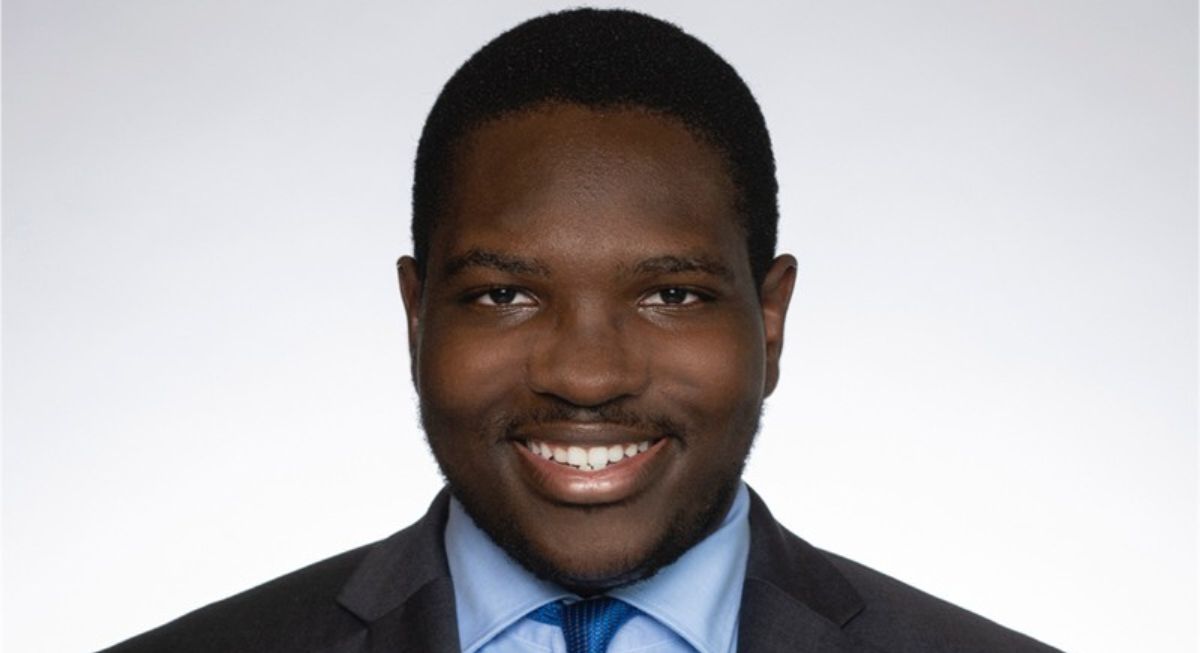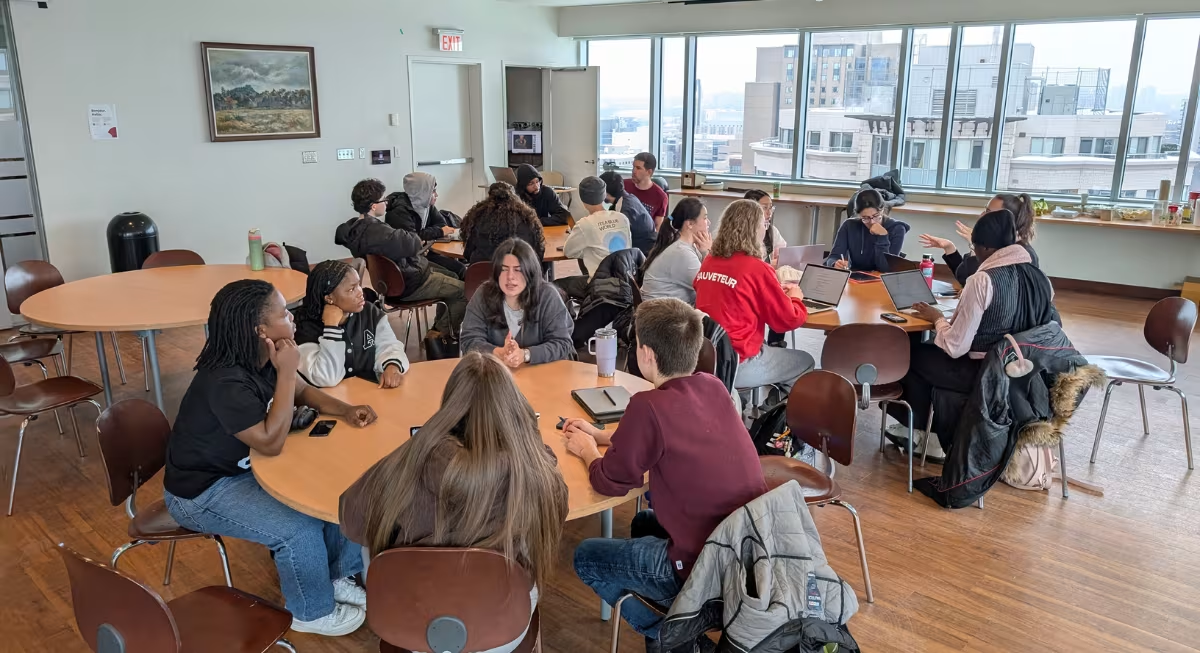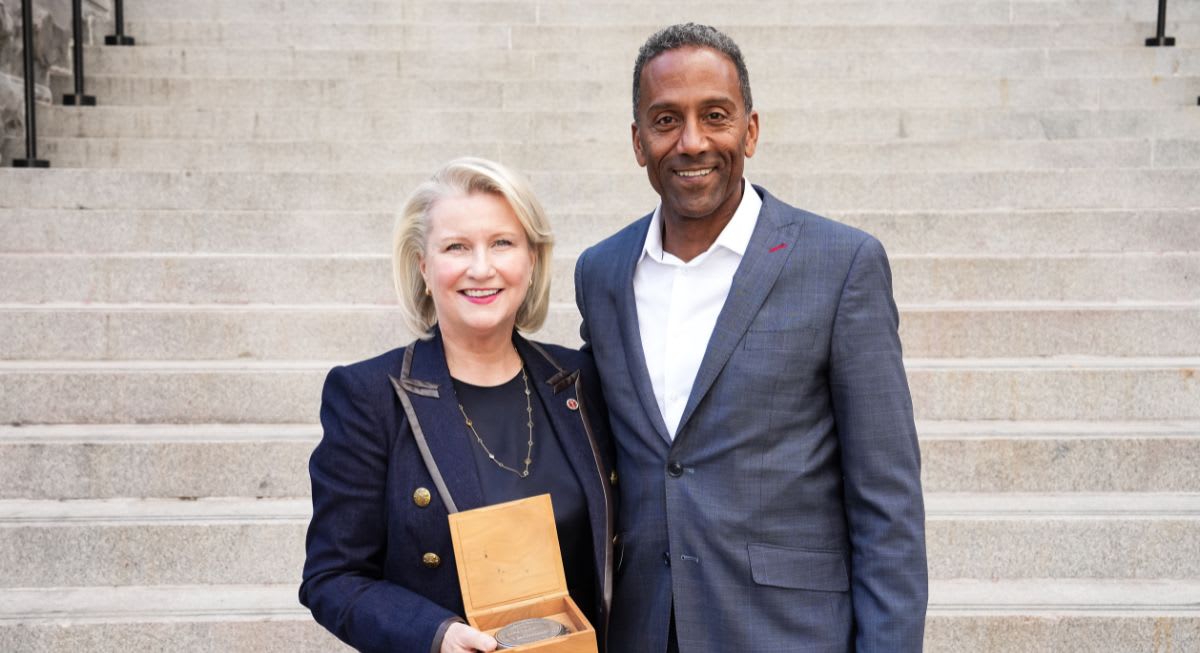What happens when you ask finance students to set aside the spreadsheets and dive into ambiguity?
In ADM 4355 – Finance, Ethics and Social Responsibility, Professor Darlene Himick challenged her students to do just that, stepping away from the usual technical and quantitative approaches, and instead exploring qualitative research grounded in human experience. “Finance students get a lot of exposure to data and models,” Himick explained. “I wanted to offer something different, something that got them out of their comfort zone and tapped into their natural curiosity all while allowing them to explore issues that actually affect their lives.”
Students had to define their own questions, design interviews, and draw insights, many for the first time, and ultimately propose finance-related solutions to the issues they explored, as public-facing academic posters.
The result? A vibrant showcase of student-led inquiry grounded in real-world ethics, lived experience, and the UN Sustainable Development Goals (SDGs). The Green Academy sponsored the showcase and poster competition, which brought large numbers of students, faculty, and library visitors together during a week-long exhibit on the second floor of the Management Library.
Across two sections of the course, over 60 posters were created, and six winning teams were selected through peer and audience voting. Topics ranged from financial literacy and smartphones to sustainable fashion and student mental health. All of it, proudly homegrown at Telfer.
Spotlight on the first place Winning Posters
M SECTION
🏆 Threading Ethics into Fashion
Khadija Ahmad, Faseeha Farhan, Shumail Sheikh
Grounded in SDG 12: Responsible Consumption, this project explored the gap between students’ support for sustainability and their actual fashion choices. While price and convenience remain top priorities, students often engage in sustainable habits, like thrifting, without consciously identifying them as ethical.
The team proposed financial incentives such as on-campus resale pop-ups, transparent pricing labels, and partnerships with ethical brands to make sustainable fashion more visible and viable. Their approach used finance as a lever to shift habits from convenience to conscious consumption.
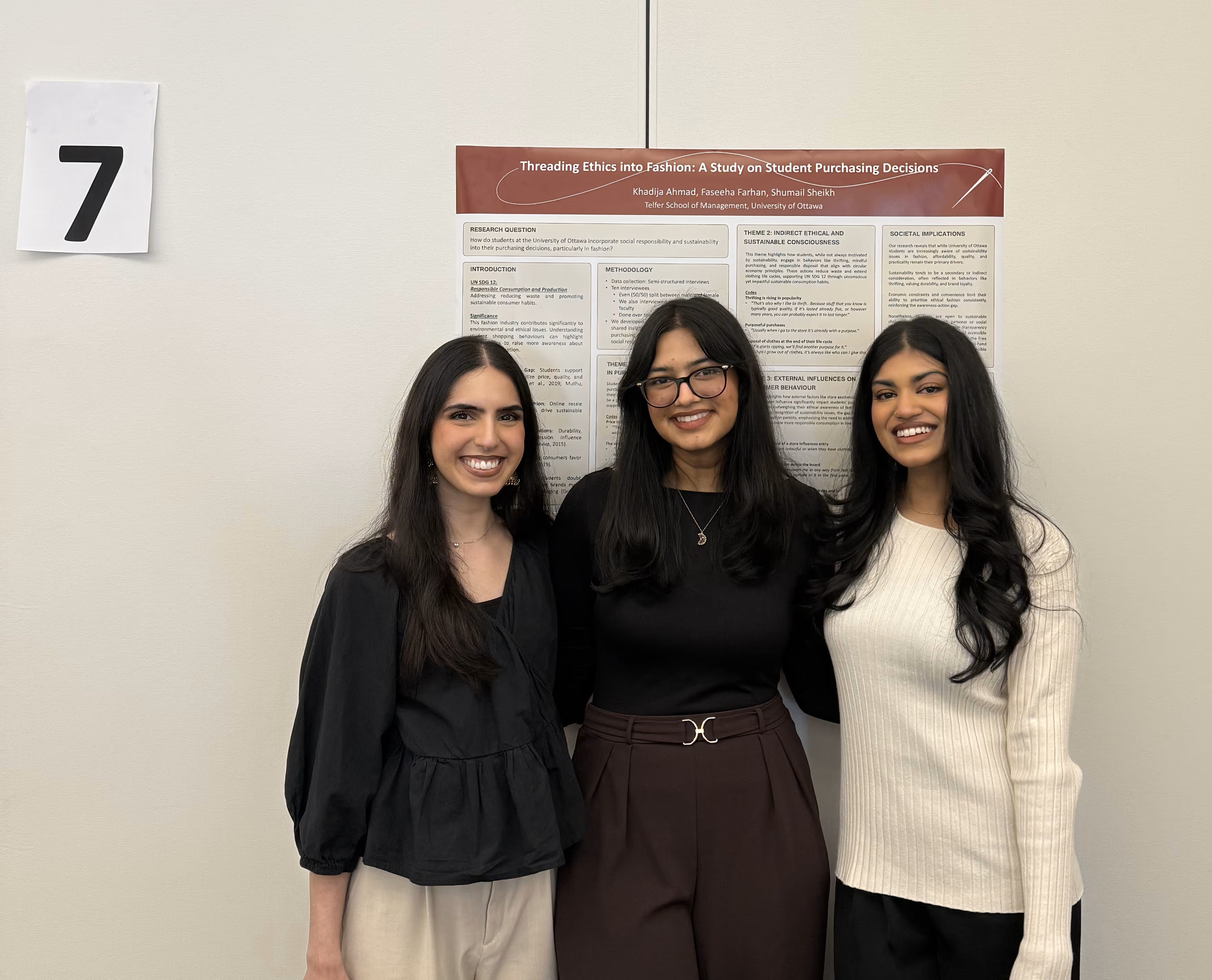
“It felt rewarding to spend a semester researching something we were passionate about,” shared Faseeha Farhan. “Analyzing the interviews, really making sense of people's habits and values, was fascinating. It showed us how everyday choices, can be part of a bigger story about ethics and sustainability.”
“Talking with judges and visitors felt different from a regular classroom presentation,” added Khadija Ahmad. “It helped me build real confidence, speaking spontaneously, exchanging ideas about something meaningful.”
N Section
🏆 How Smartphones Are Changing Social Connection on Campus
Derek Cruickshank, Daniel Johnston, Hayden Weedmark
Linking SDG 3: Good Health and Well-Being with SDG 4: Quality Education, this project looked at how smartphones affect student engagement, both socially and academically. Interviews revealed that digital convenience often comes at the cost of deep, in-person connection and classroom focus.
To address this, the team proposed a set of solutions: institutional funding for phone-free community events, digital detox campaigns, and financial support for peer-led wellness programs. Their proposal reframed social connection as a strategic investment in student well-being.
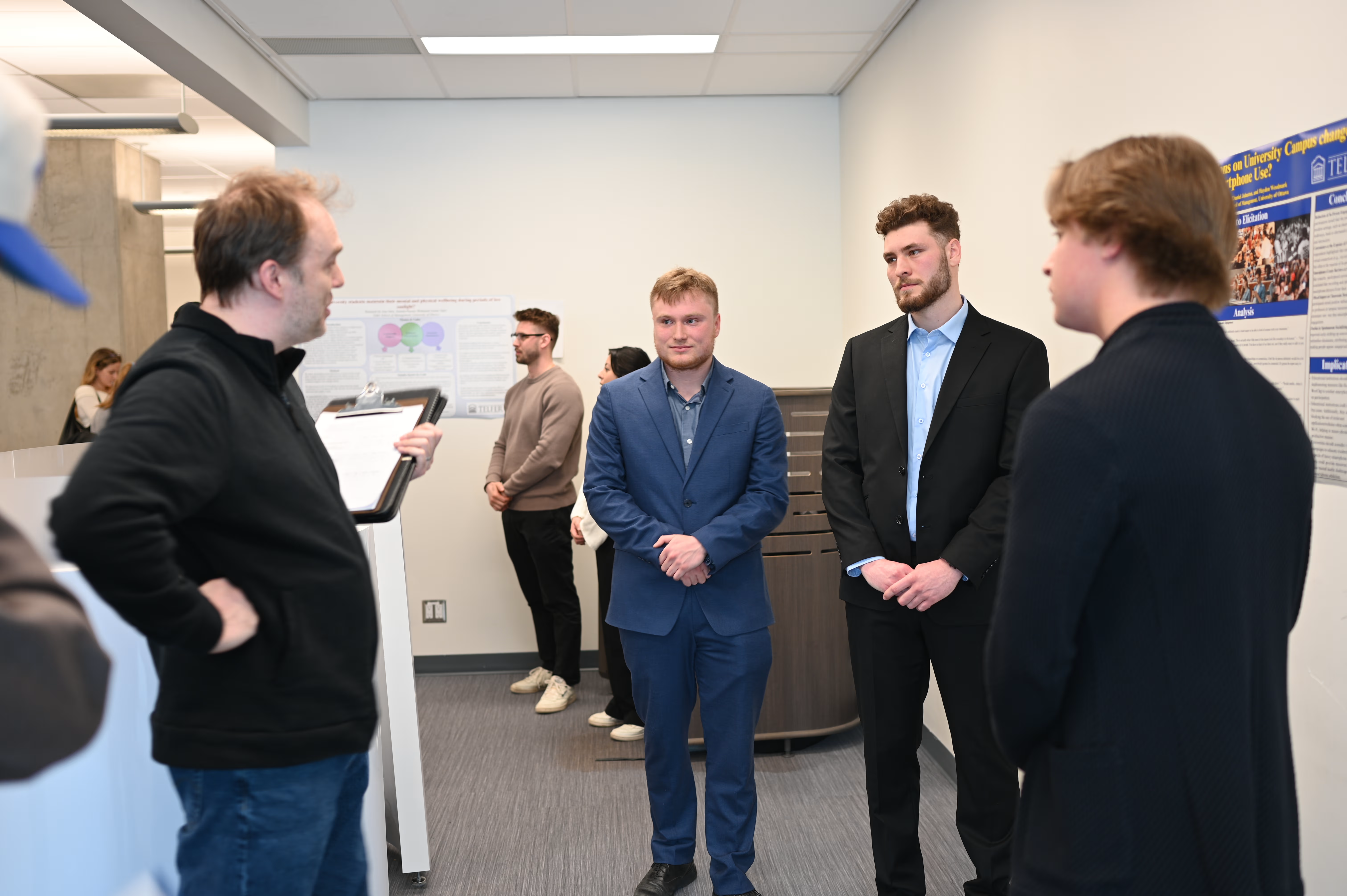
“As finance students, we’re used to working with numbers and models. This project challenged us to find meaning in dialogue and emotion instead,” the team shared. “Hearing students open up about loneliness made us realize how finance, ethics, and real social issues are deeply connected, especially in our own campus community.”
Creating Space for Critical Thinking
By aligning their topics with SDGs and encouraging field-based research, the course encouraged students to critically engage with the world around them and become researchers, problem-solvers, and storytellers.
“My hope is that this kind of work opens the door for students to see themselves as capable of doing research, maybe even at the graduate level. We have a great MSc program here at Telfer, maybe this gives them a taste of how empowering research can be.” Himick reflected.
Each of the teams received a small cash prize, funded by the Green Academy, in recognition of the insight, effort, and care they brought to their work.
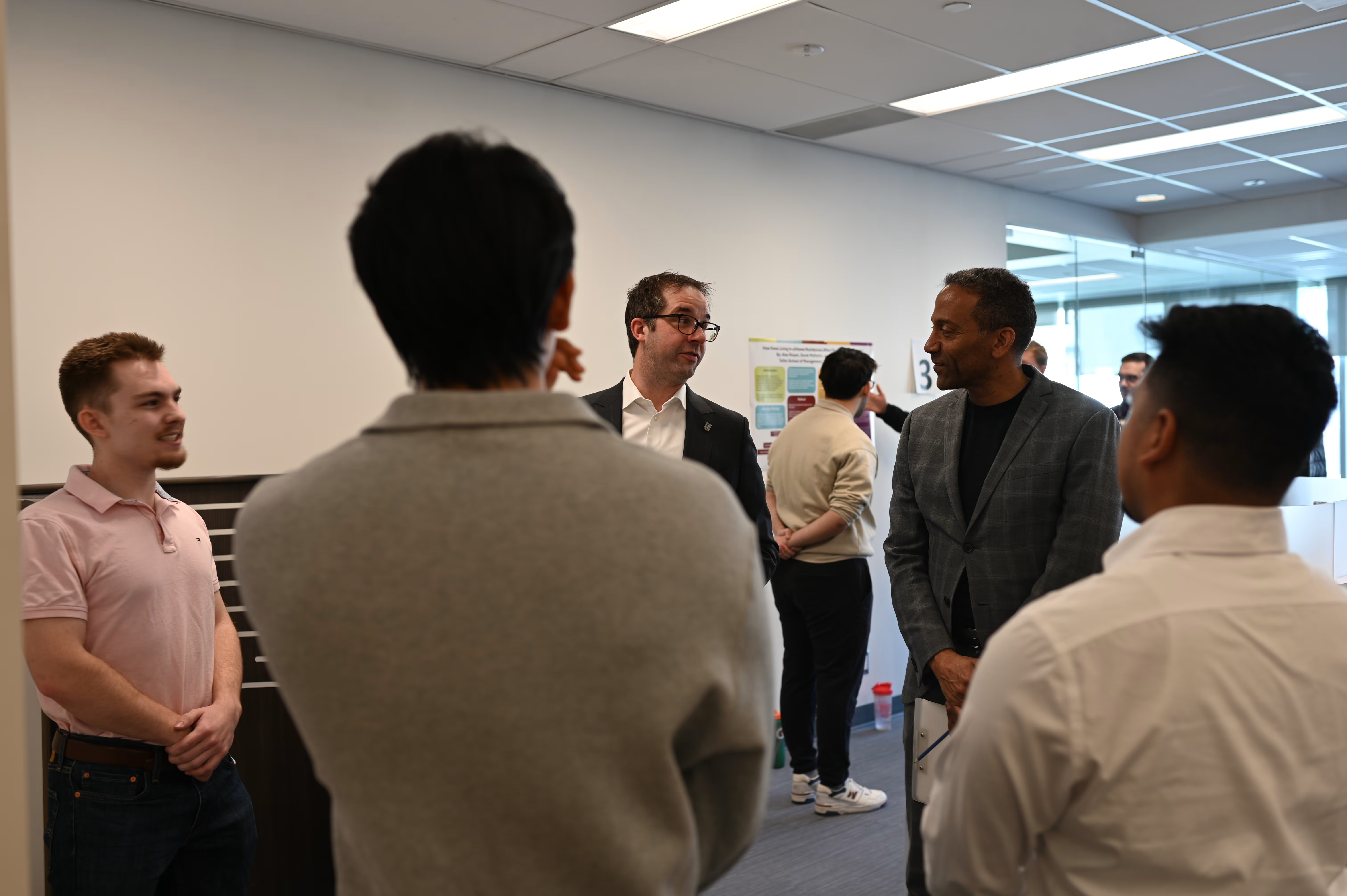
The Green Academy collaboration
The support of the competition came as part of the Green Academy’s mandate to cultivate systems thinking and sustainable innovation across disciplines. Finance students were able to explore social and environmental questions through a research lens; an approach aligned with its mission to lead the transition toward responsible management education.
This competition was an opportune reminder to us all that ethical thinking starts with asking the right questions and daring to find the answers for ourselves. Just as Shumail Sheikh put it “We realized how small, mindful choices we were already making, can spark bigger change. It all begins with awareness and daring to ask better questions about the world we’re building.”

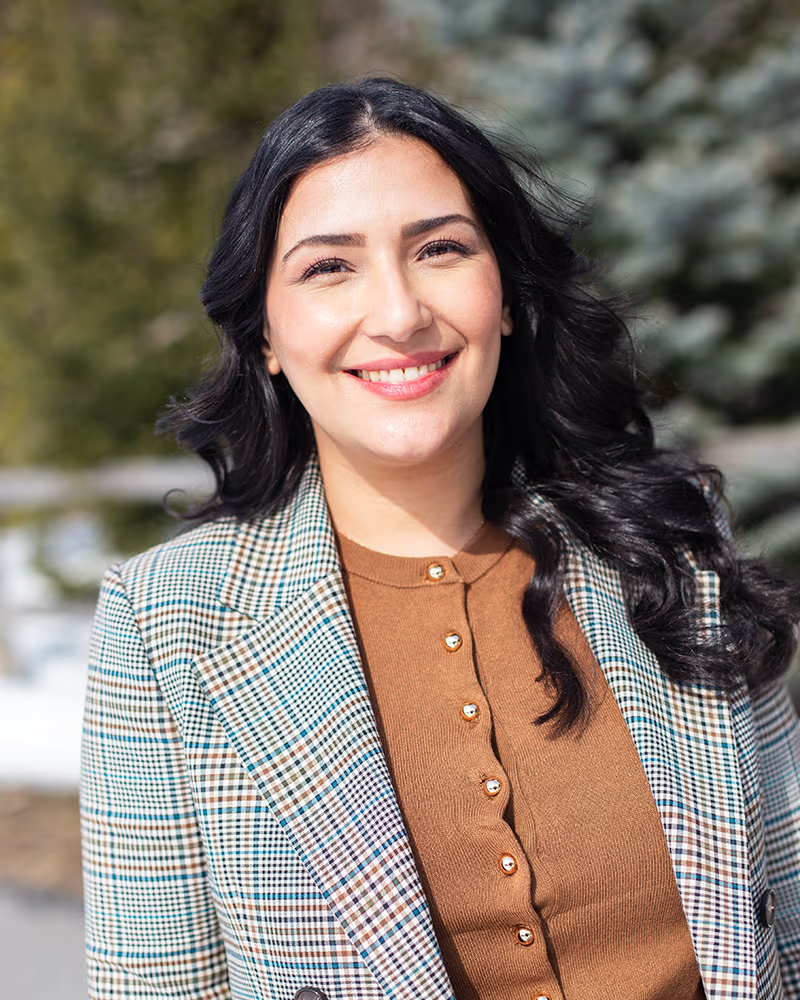
This article was written by Takwa Youssef, coordinator of Telfer's Green Academy.
As coordinator of the Green Academy, Takwa plays a key role in supporting the delivery of the academy's interdisciplinary programs. She oversees logistics, event coordination, and resource management, ensuring the successful execution of courses, workshops, training, and research. Takwa bridges faculties, services, and external partners, cultivating collaboration that enriches the program’s impact. She manages communication, finances and administration, while also driving the Academy’s long-term vision by strengthening connections across disciplines and supporting its ongoing growth.
